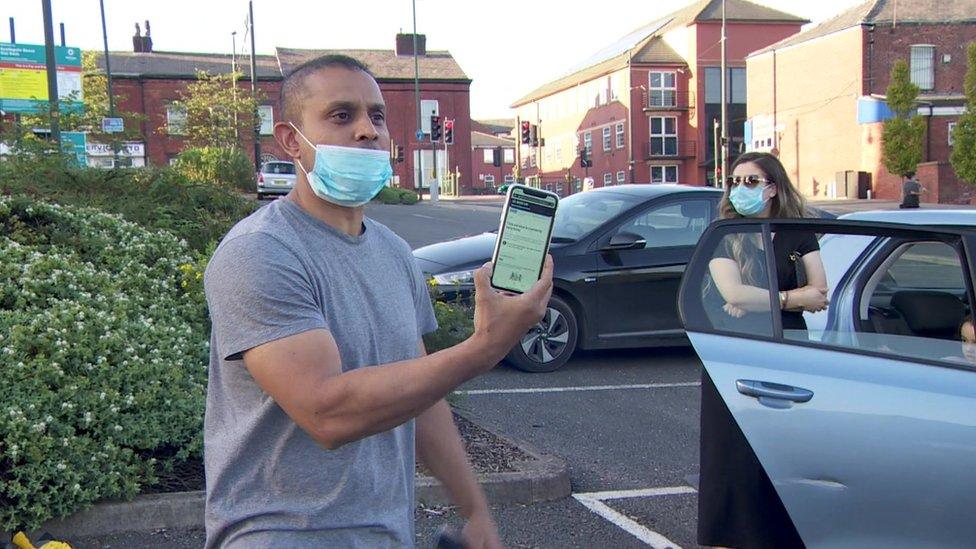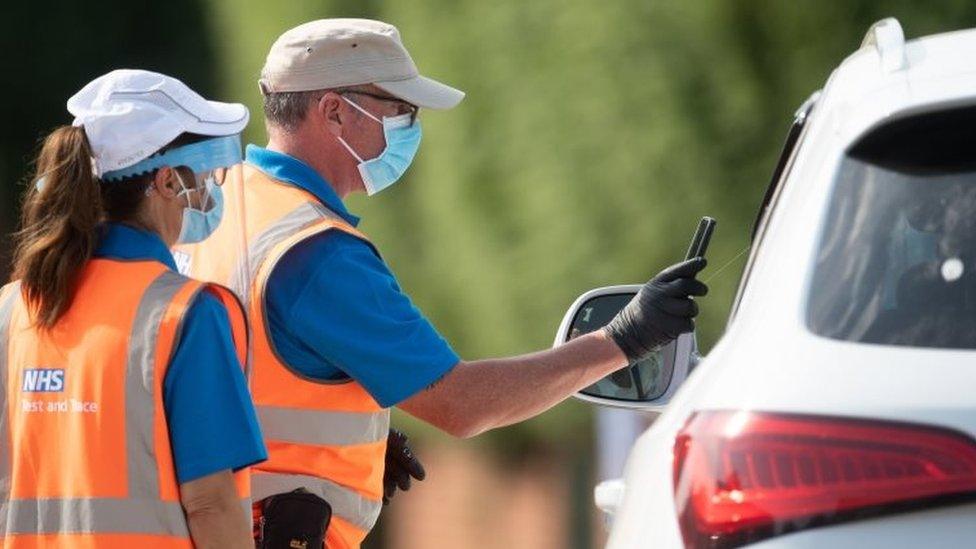Coronavirus: A testing time for ministers
- Published

Family queuing for coronavirus tests in Oldham
No government wants scenes like this.
Families in Oldham, external, where there has been particular concern about the spread of coronavirus, are boiling over with frustration that they can't access tests.
Not least a government that promised the public its testing system would be better than any other country's in the world.
Not least a government that believes a properly functioning testing system is vital to keeping kids back in school and climbing out of recession as quickly as possible.
Not least a government that knows testing is a crucial way to monitor and control the virus that saw such a terrible loss of life in the grim spring that we have all just lived through.
The challenges are obvious.
The system was scrambled together in a matter of months.
There seem to be problems with capacity in labs.
Huge numbers of people are now getting tested.
Demand has soared, with children going back to school, and ministers having initially encouraged people to come forward.
The government has been trying to move testing capacity around to areas where its most needed, promising now to deliver 100,000 tests a day to care homes, where people are particularly vulnerable.
But with varying statistics, it can be hard to work out exactly what is going on.
There is a mountain of anecdotal evidence of real frustration with the system, but this is what we know for sure.
One Cabinet minister told me yesterday it's a "classic government problem" where demand for a public service outstrips supply.
That minister was confident that "underneath the noise" the majority of people are getting the service they need and when they need it.
But in the House of Commons today you couldn't help but bump into MPs from all parties full of complaints from constituents about a lack of access.
Claims from Jacob Rees Mogg today, external, that the system is a "national success" don't exactly scream empathy with people stuck in the system.
And after a painful few months for many people in all sorts of ways, public patience is not elastic.
The prime minister last week even promised by early next year there could be 10 million tests a day.
But overpromising and underdelivering is not a reputation any government desires.
- Published3 May 2022

- Published15 September 2020

